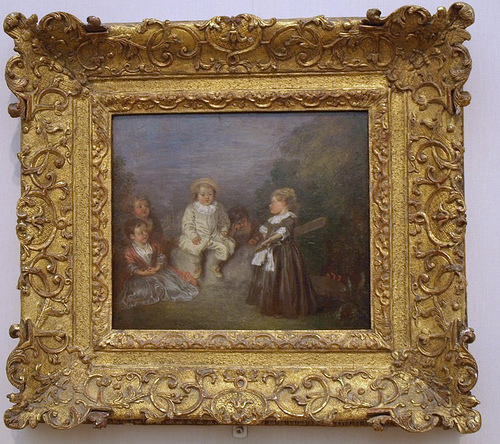 How often have you heard people lament that these days are not like the “good old days”? Perceptions of the past state of the world or Christianity are often skewed, reflecting the selective memories of individuals or the selective reading of the historical record. We like to think that there was a Golden Age when true and pure Christianity was dominant and Christians all lived happy, holy lives, but the more history I read, the more I believe the idea is a fantasy.
How often have you heard people lament that these days are not like the “good old days”? Perceptions of the past state of the world or Christianity are often skewed, reflecting the selective memories of individuals or the selective reading of the historical record. We like to think that there was a Golden Age when true and pure Christianity was dominant and Christians all lived happy, holy lives, but the more history I read, the more I believe the idea is a fantasy.
Westminster Seminary church historian, Carl Trueman reminds us that this pining for an ideal era of Christianity has a long history that goes back at least to the Reformation:
One harmful but guiding assumption of much of Reformation and post-Reformation historiography has been that there are ‘golden ages’ such that the present state of the church pales in comparison to some perceived time when all was right with the church…
The Golden Age model has two faults. First, it typically smooths out the rough spots in a particular era by treating theology as though it dropped out of the sky, or, perhaps better, straight out of the Bible. It does not. Humans do theology in specific historical, cultural contexts, and theological issues are always more complex than the Golden Age model allows. One does not have to reduce everything to an extreme materialist model of history to acknowledge the truth of this statement.
In addition, it does not always allow for the fact that we live in the late twentieth century, not the sixteenth or seventeenth. If one wishes to appropriate the sixteenth or seventeenth century, for example, as a model for contemporary church theology, one must do without blinkers and with an awareness of the theological, cultural and philosophical developments between then and now. Ignoring the critical questions of history does not make them go away.
(Protestant Scholasticism: Essays in Reassessment,ed. Carl R. Trueman and R. S. Clark; Paternoster, 1999, xvi.)
With that last statement Trueman reminds us that we need to tell the whole story, a story that takes all the aspects of life into consideration: political, sociological, and cultural. We cannot imagine that none of these things mattered or had an influence on the times. Additionally, if we wish for the good old days of selective memory or reading, we have to take the good and the bad. If it’s the Reformation we wish for, we have to take the inherent violence and political instability of the times, in addition to the somewhat rudimentary post-Catholic church order and life. If we long for the great revivals of the 18th or 19th centuries we have to take the extreme emotionalism, moralism and nationalism that were often confused with the gospel.
Rather than wish for the “good old days,” we ought to take the advice of Solomon, who recommended against idolizing the past, and instead instructed us to enjoy the present, warts and all:
Say not, “Why were the former days better than these?” For it is not from wisdom that you ask this…In the day of prosperity be joyful, and in the day of adversity consider: God has made the one as well as the other, so that man may not find out anything that will be after him. (Eccl. 7:10, 14)


0 Comments